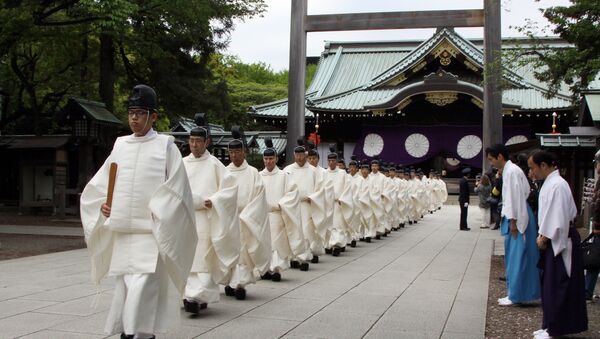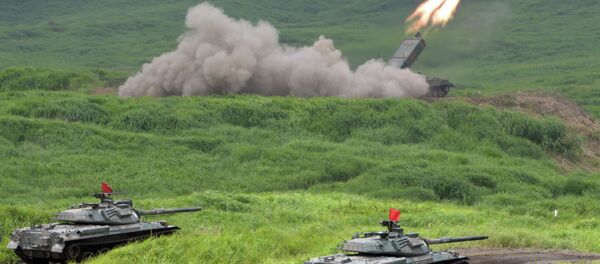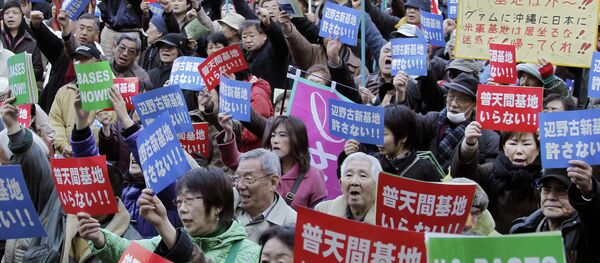Abe's ritual offering marks the beginning of a three-day spring festival at the shrine, to which he also offered plants during last year's spring and autumn festivals. In December 2013 Abe made a surprise visit to the shrine, which caused anger in neighboring countries which suffered under Japan's colonial expansion prior to and during the Second World War. The move even prompted a rebuke from Washington, which stated that "the United States is disappointed that Japan's leadership has taken an action that will exacerbate tensions with Japan's neighbors."
This year's Asian African Conference marks the 60th anniversary of the event, which began in 1955 with the Bandung conference of mostly newly independent states; it began in Jakarta on Sunday with the leaders' meeting scheduled to begin later this week.
Prior to leaving for the summit, Abe, who is expected to make a short speech at the conference, told journalists he had hopes for a meeting with Chinese leader Xi Jinping on the sidelines of the summit, to follow a meeting in Beijing in November which marked a thawing in bilateral relations.
"We especially hope that the Japanese government will not miss these great opportunities to clearly state that historical view of the Japanese government to neighboring countries and the international community," said South Korean Foreign Ministry spokesman Noh Kwang-il on Tuesday.
Noh Kwang-il also criticized Abe's decision to send the offering to the shrine particularly since "this symbolic year marks 70 years since the end of the war," and 50 years since bilateral relations were normalized.
Chinese foreign ministry spokesman Hong Lei on Tuesday refused to comment on whether the Chinese and Japanese leaders would hold a bilateral meeting at the summit, and echoed the call for Abe to make reference to his country's wartime past, saying that he "must take concrete steps to honor its commitment to squarely face up to history and reflect upon its history of aggression."
In an interview with Japanese TV on Monday Abe said he "upholds the basic thinking behind past war apologies, which means there isn’t a need to say them again."
Abe's speech this week, and another he is set to make to America’s Congress later this month are seen as clues to the content of a statement he will make in August this year to mark the 70th anniversary of the end of World War Two, and as such are being followed with interest by Japan's Asian neighbors.






